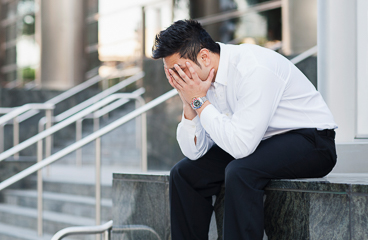
Overview
Using cocaine can cause physical and mental harm. It can increase your heart rate and blood pressure, which can lead to a heart attack and even death. It can raise your body temperature. You may have nausea, vomiting, and chills. You may become shaky and restless. You also may see or hear things that are not there (hallucinations) or believe things that aren't true (delusions).
In addition to these symptoms, smoking cocaine can cause breathing problems. Snorting cocaine can damage your nasal passages. Injecting cocaine can cause an abscess at the injection site or an infection throughout your body.
When the doctor treated you, they may have:
- Watched your symptoms or done tests to find out how much cocaine was in your body.
- Treated you to control your heart rate, temperature, and blood pressure.
- Given you oxygen to help you breathe.
- Given you medicine to settle your thoughts and help keep you calm.
The doctor also watched you carefully to make sure you were recovering safely.
Follow-up care is a key part of your treatment and safety. Be sure to make and go to all appointments, and call your doctor if you are having problems. It's also a good idea to know your test results and keep a list of the medicines you take.
How can you care for yourself at home?
- Ask the doctor if you will need medical care to manage withdrawal symptoms when you first quit.
When you use cocaine regularly, your body and brain get used to it. This is called physical dependence. If you are physically dependent on cocaine, you may have withdrawal symptoms when you stop using it. Withdrawal may be dangerous without medical care.
- Talk to your doctor about substance use treatment programs that can help you stop using cocaine.
- Take good care of yourself.
When you quit using cocaine, you may feel drowsy, have vivid dreams, or feel hungry, tired, or depressed. You may also feel confused and have trouble thinking clearly. To help you get past these symptoms:
- Get plenty of rest.
- Drink lots of fluids.
- Stay active.
- Eat healthy foods.
When should you call for help?
Call 911 anytime you think you may need emergency care. For example, call if:
- You have symptoms of a heart attack. These may include:
- Chest pain or pressure, or a strange feeling in the chest.
- Sweating.
- Shortness of breath.
- Nausea or vomiting.
- Pain, pressure, or a strange feeling in the back, neck, jaw, or upper belly or in one or both shoulders or arms.
- A fast or irregular heartbeat.
- You feel you cannot stop from hurting yourself or someone else.
Where to get help 24 hours a day, 7 days a week
If you or someone you know talks about suicide, self-harm, a mental health crisis, a substance use crisis, or any other kind of emotional distress, get help right away. You can:
- Call the Suicide and Crisis Lifeline at 988.
- Call 1-800-273-TALK (1-800-273-8255).
- Text HOME to 741741 to access the Crisis Text Line.
Consider saving these numbers in your phone.
Go to 988lifeline.org for more information or to chat online.
Call your doctor now or seek immediate medical care if:
- You have severe side effects from using cocaine. These may include problems with thinking, such as seeing things that aren't there or thinking that someone is trying to harm you (paranoia).
- You have new or worse withdrawal symptoms.
Watch closely for changes in your health, and be sure to contact your doctor if:
- You need more help or support to stop.
Where can you learn more?
Go to http://www.healthwise.net/patientEd
Enter X523 in the search box to learn more about "Cocaine Use: Care Instructions".
Current as of: November 15, 2023
Author: Ignite Healthwise, LLC Staff
Clinical Review Board
All Healthwise education is reviewed by a team that includes physicians, nurses, advanced practitioners, registered dieticians, and other healthcare professionals.

